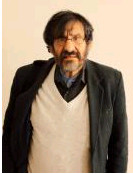
‘All these causes ensure there are networks that gain from corruption and will fight hard to protect their turf’ IF WE really want to get serious about corruption, we will have to accept that it runs much deeper — and that taming it will take much longer — than many of us believe.
An odd feature of some reaction to the budget speech is the claim that it failed seriously to address corruption. Actually, it dwelt on corruption in some detail. The problem, it seems, is that it did not say about it that which the critics wanted to hear.
The mainstream view on corruption is that it is caused purely by politicians and, in some views, by a fairly small group of them. The solution is therefore simple: get rid of them. And so “getting serious about corruption” simply means throwing some politicians out of office and into jail.
In reality, the problem runs far deeper and solutions are not that easy. If they were, the firing of two Cabinet ministers in response to a finding by the public protector would have made far more difference than it has. The problem has deep roots, is not restricted to the public sector and there are well-organised interests who gain from it and need it to continue. All of which is consistent with the budget speech’s warning that the campaign against corruption faces strong resistance.
Corruption here has a variety of causes beyond the obvious one that some see public office as a means to enrich themselves rather than to serve society.
Corruption did not begin here in 1994 — it is embedded in our past. Because people could often not gain access to water or electricity legally, let alone run a business or get rich, networks emerged that addressed these needs and wants outside the law. This set patterns that have not disappeared.
In the formal economy, the system also entrenched cronyism. This, too, survived the change in political system.
One of its features has been a pattern in which some in business seek to protect their interests by forming cosy relationships with politically connected people. While reportage on corruption focuses on the misuse of state resources, often the problem is also that political office is seen as a way of winning the favour of private interests (which, of course, may expect something in return).
Income inequalities, and the many signals in this society which tell people that those who are most worthy of respect are those who own many things most people cannot afford, create new motives for corruption.
All these causes ensure there are networks that gain from corruption and will fight hard to protect their turf — and many of their members are not in the government. Corruption is often a relationship between public and private actors.
These realities mean that corruption is far more difficult a problem than we are usually asked to believe. It may be difficult to remove from office highly-placed politicians or officials who are corrupt. But it is much harder to turn around patterns of behaviour that run through the society and are not restricted to a small group.
Since corruption is often a relationship between public and private, the private sector is also a battleground in the fight against it, and businesses and professional associations are important players. Many solutions may require co-operation between private interests and the public sector.
Because the problem is deep-rooted, solutions are not simple. Often they require a close knowledge of the way in which corrupt relationships work in particular parts of the economy and society. A variety of responses may be needed to deal with different corrupt relationships and we should be sceptical of claims that there are simple answers that fit all situations.
The widest possible range of interests need to participate in the search for solutions because people in the sectors where the problem occurs will have a better idea of possible remedies.
For some in the debate, pointing out that the problems are complicated simply makes excuses for people in high office who should be forced to pay politically and personally for abusing public trust. There are two reasons this misunderstands the issue.
First, anger at public officials may be emotionally satisfying. But as it addresses only part of the problem, it cannot on its own prevent the problem persisting after those office holders are removed.
Second, and perhaps more important, recognising that corruption is deep-rooted does not mean we need to stop holding politicians and officials to account. Understanding that they are only part of the problem obviously does not mean that they are not a problem at all. If corruption occurs at different levels and in different ways, then it is possible to fight it in a variety of ways.
As the budget speech implies, the problem may not be that the national debate is too concerned with corruption, but that it is not serious enough about it.
If it is to become more serious, it must recognise that far more is at stake than the deeds of a few public office holders.
Article by: Steven Friedman
Friedman directs the Centre for the Study of Democracy.
Source: Business Day
